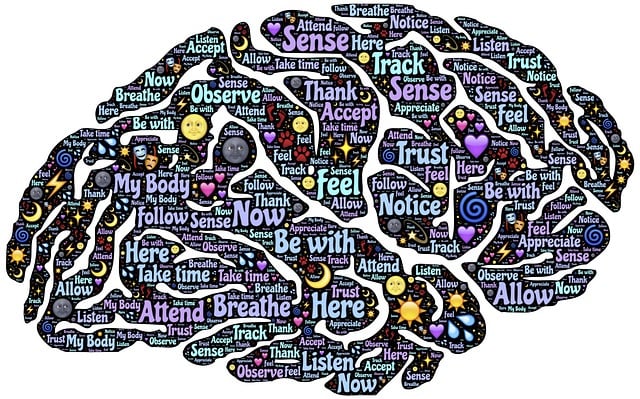Cultural competency in healthcare, especially regarding diverse gender identities, is crucial for providing equitable care. Superior Gender-Affirming Care (SGAC) therapy respects individual gender identity, improves mental health, and fosters open communication. This involves training healthcare providers in cultural sensitivity, integrating mental wellness exercises, and advocating for inclusive policies. Measuring the impact of training through assessments, feedback, and data collection ensures continuous improvement and enhances patient experiences, outcomes, and a more supportive healthcare environment.
Healthcare provider cultural competency training is a vital step towards building inclusive care systems. This comprehensive guide explores ‘Understanding Cultural Competency in Healthcare’, highlighting the significance of bridging cultural gaps for effective patient outcomes. We delve into the transformative power of gender-affirming practices, offering strategies for delivering superior gender-affirming care therapy. Furthermore, this article measures and evaluates the impact, emphasizing continuous improvement through data-driven methods.
- Understanding Cultural Competency in Healthcare: Building Bridges to Inclusive Care
- The Role of Gender-Affirming Practices in Enhancing Patient Outcomes
- Strategies for Delivering Superior Gender-Affirming Care Therapy
- Measuring and Evaluating the Impact: Ensuring Continuous Improvement
Understanding Cultural Competency in Healthcare: Building Bridges to Inclusive Care

Cultural competency in healthcare is a cornerstone for delivering inclusive and equitable care to a diverse range of patients. It involves understanding and appreciating the cultural beliefs, values, and practices that shape individuals’ health experiences and behaviors. By fostering cultural sensitivity, healthcare providers can build bridges to superior gender-affirming care therapy, ensuring that every patient feels respected, heard, and supported.
This transformative journey starts with recognizing that cultural barriers can significantly impact access to healthcare services. Through comprehensive training programs and ongoing education, professionals in the field can develop inner strength by cultivating empathy, patience, and a willingness to adapt their communication styles. Such efforts are pivotal in mental illness stigma reduction campaigns, promoting public awareness campaigns development, and fostering an environment where everyone has the opportunity to thrive.
The Role of Gender-Affirming Practices in Enhancing Patient Outcomes

In the realm of healthcare, providing culturally competent care is no longer a consideration but a necessity, especially when addressing patients’ diverse identities and needs. One significant aspect that has gained prominence is the role of gender-affirming practices in enhancing patient outcomes. Superior Gender-Affirming Care (SGAC) therapy goes beyond traditional treatments by recognizing and respecting an individual’s self-assessed gender identity. This approach fosters a sense of safety and comfort for transgender and non-binary patients, leading to improved mental health and overall well-being.
By integrating SGAC into healthcare settings, medical professionals cultivate compassion and empathy, which are essential components of positive thinking and self-care practices. Healthcare providers who embrace these skills can create an environment where patients feel validated and supported. Such gestures have profound effects, encouraging patients to engage in open communication about their needs and experiences. This, in turn, enables healthcare teams to offer tailored interventions, ensuring that every patient receives the compassionate care they deserve.
Strategies for Delivering Superior Gender-Affirming Care Therapy

Providing superior gender-affirming care requires a nuanced approach that goes beyond simply offering medical procedures. Healthcare providers must be trained in cultural competency to ensure they understand and respect the diverse needs of transgender and non-binary individuals. One effective strategy is incorporating mental wellness journaling exercises into treatment plans. This allows patients to express their thoughts, fears, and hopes in a safe, private space, fostering self-awareness and facilitating open communication with healthcare providers.
Additionally, developing comprehensive Mental Wellness Coaching Programs can empower individuals to navigate the complexities of gender transition while promoting resilience and overall mental health. Supporting these programs through policy analysis and advocacy is crucial, ensuring that healthcare systems are equipped to deliver inclusive care. By integrating these approaches, healthcare providers can create a more affirming environment, enhancing patient experiences and outcomes in their pursuit of superior gender-affirming care therapy.
Measuring and Evaluating the Impact: Ensuring Continuous Improvement

Measuring and evaluating the impact of cultural competency training is a vital step in ensuring continuous improvement within healthcare organizations. By implementing robust assessment strategies, institutions can gauge the effectiveness of their programs and identify areas that require further attention. This process involves gathering feedback from both participants and the wider community to gain insights into the training’s real-world application. One key aspect to focus on is the provision of superior gender-affirming care, which requires a deep understanding of diverse identities and experiences.
Regular assessments should include surveys, focus groups, and case studies to capture qualitative and quantitative data. For instance, evaluating improvements in emotional regulation among mental health professionals can reveal the training’s impact on practitioners’ ability to connect with clients from various cultural backgrounds. Additionally, risk assessment for mental health professionals is an essential component, ensuring they are equipped to handle sensitive issues while maintaining ethical standards and client safety. These evaluations enable healthcare providers to adapt their practices, ultimately enhancing patient outcomes and fostering a more inclusive healthcare environment.
Cultural competency training is a vital step towards providing superior gender-affirming care therapy. By understanding diverse cultural perspectives and adopting inclusive practices, healthcare providers can significantly enhance patient outcomes. The strategies outlined in this article offer a roadmap for navigating complex cultural landscapes and delivering compassionate, effective treatment. As we continue to measure and evaluate these initiatives, the goal is to ensure continuous improvement and create a more welcoming healthcare environment for all individuals, regardless of their gender identity.














